The Dirty Truth About Dog Poop: 6 Facts Every Pet Owner Should Know
Written by: Gina Kline | Owner of Koby’s Cleanup
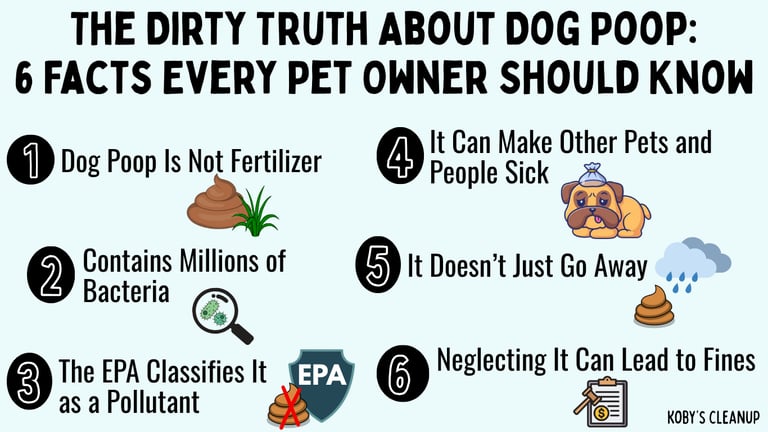

If you're a dog owner, you're already familiar with the daily ritual of picking up after your pup. But many people don’t realize just how serious dog waste can be for our environment, our health, and even our wallets. It may seem harmless, especially when compared to other waste types, but dog poop is anything but innocent.
Below are six surprising (and honestly, kind of gross) facts about dog poop that every responsible pet owner should know:
1. Dog Poop Is NOT Fertilizer
Contrary to popular belief, dog waste is not a natural fertilizer—and it can actually do more harm than good in your yard. Unlike cows or horses, which are herbivores and produce waste that breaks down cleanly into the soil, dogs are omnivores and eat protein-rich diets. This results in acidic feces that can damage grass, plants, and soil quality.
Dog poop also contains bacteria and parasites that can linger in the environment. Trying to “recycle” dog waste by leaving it in your yard can lead to patchy grass, bad smells, and even long-term soil contamination. In short: don’t treat it like compost—it’s not.
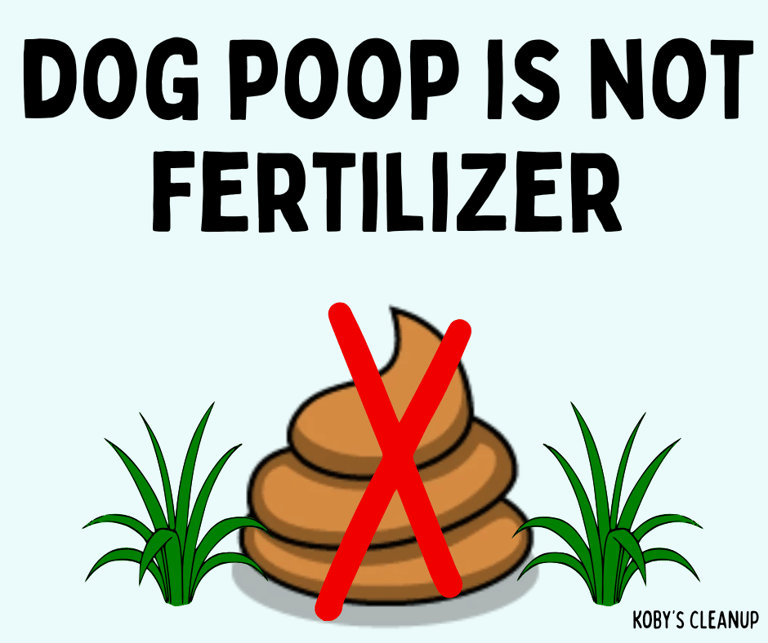

3. The EPA Classifies It as a Pollutant
The U.S. Environmental Protection Agency (EPA) has officially labeled pet waste as a nonpoint source pollutant—a category that includes harmful runoff like oil, pesticides, and toxic chemicals. When left on the ground, especially near sidewalks or storm drains, dog poop can get washed into local waterways. That waste brings harmful bacteria and nutrients that disrupt ecosystems and can make water unsafe for swimming, fishing, or drinking.
Just two or three days’ worth of dog droppings from 100 dogs can contribute enough bacteria to temporarily close a bay or watershed area to swimming and shellfishing. That’s how serious it is.
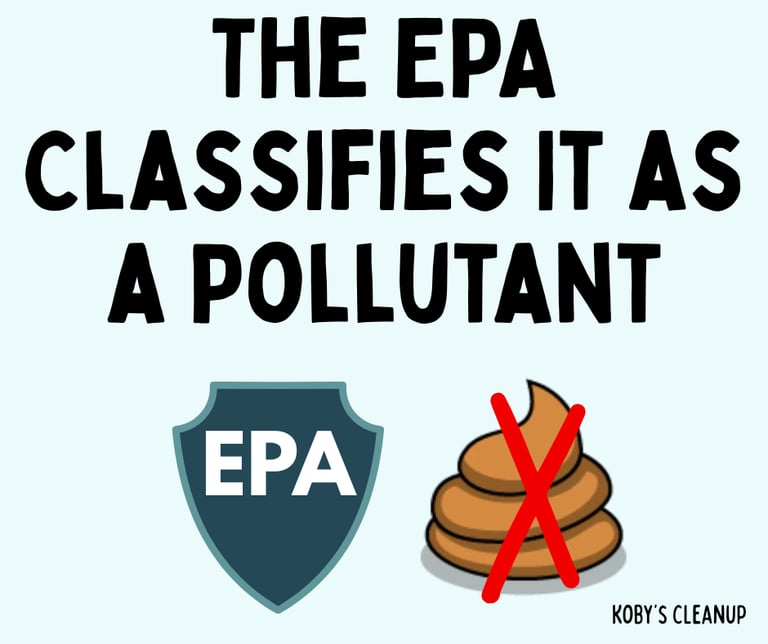

2. One Pile Can Contain Millions of Bacteria
You might think one little pile can’t hurt anything—but you'd be wrong. A single gram of dog waste can contain over 23 million fecal coliform bacteria. These bacteria can cause a range of illnesses in humans, including:
Cramps
Diarrhea
Nausea
Kidney disorders
Serious infections in young children, the elderly, or those with weakened immune systems
And if the waste carries parasites like roundworms or hookworms? The eggs can live in the soil for months, infecting pets and humans long after the poop is gone.
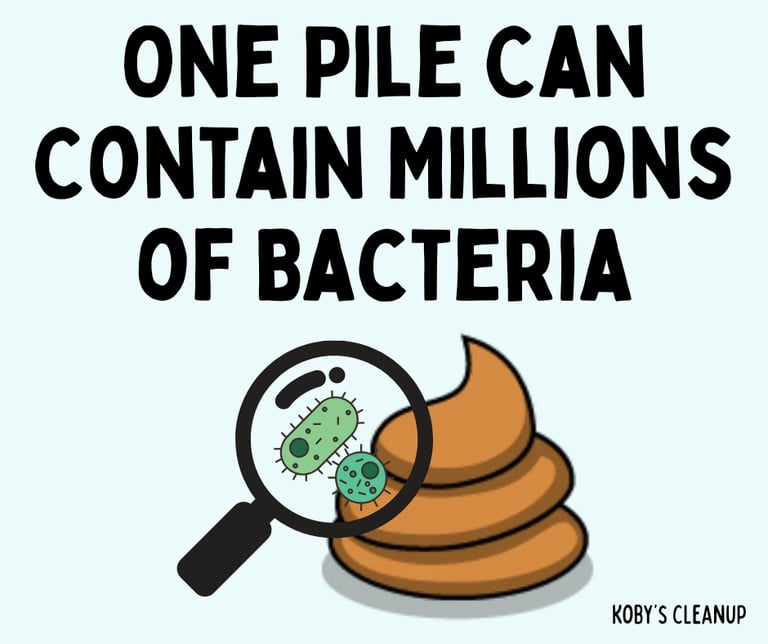

4. It Can Make Other Pets and People Sick
Dog poop can carry a number of harmful parasites and viruses that are transmissible to both other dogs and humans. Some of the most common diseases found in dog waste include:
Giardia
Parvovirus
Salmonella
Campylobacter
Whipworms, hookworms, and roundworms
Pets can become sick just by sniffing, stepping in, or licking contaminated soil. Children playing in the yard are especially vulnerable if infected particles stick to toys or hands. This is why timely cleanup is crucial—not just for sanitation, but for the health of everyone who shares your space.
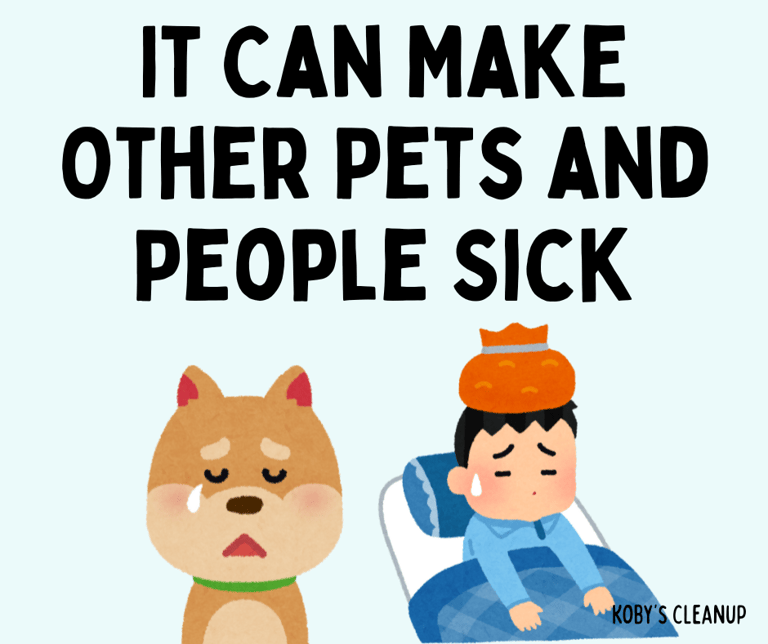

5. It Doesn’t Just Go Away
Many pet owners assume dog poop will simply "break down over time." While that’s technically true, it’s a very slow process—and far from harmless. Depending on weather and environment, it can take up to 12 months to fully decompose. During that time, it releases methane gas, a potent greenhouse gas contributing to climate change.
Even rain doesn’t solve the problem. It may wash the waste away from your lawn, but that waste—and all the bacteria it carries—simply ends up in storm drains, streams, and water systems.
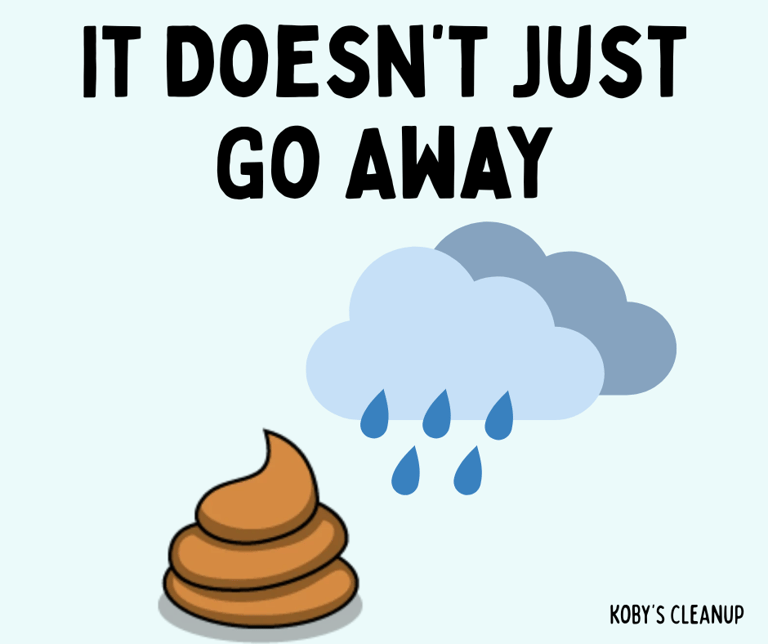

6. Neglecting It Can Lead to Fines
In most cities, leaving dog waste behind isn't just inconsiderate—it’s illegal. Many municipalities have “pooper scooper” laws requiring pet owners to pick up after their animals in public spaces. Depending on where you live, violating these laws can result in:
Warnings
Civil fines (ranging from $25 to over $1,000)
Potential legal action for repeat offenses
Not to mention, failing to clean up after your dog can create tension with neighbors and give your household a bad reputation in the community.
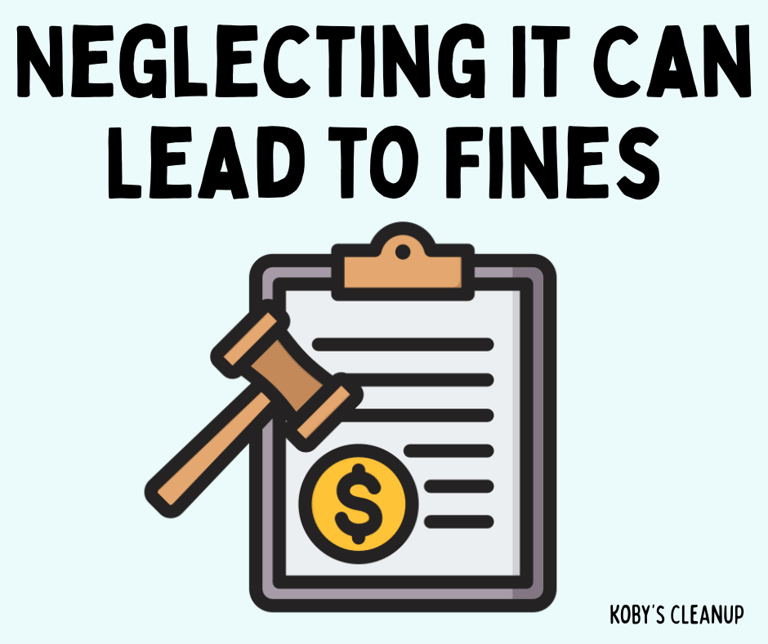

Conclusion: Picking It Up Matters
Dog poop may seem like a small issue, but its impact is anything but. It’s not fertilizer, it’s not harmless, and it definitely doesn't just disappear. It can make people sick, pollute our waterways, and contribute to long-term environmental damage.
The good news? The solution is simple: scoop it, bag it, and toss it in the trash. Whether you're in your own backyard or out for a walk, picking up after your dog is one of the easiest—and most important—ways to protect your home, your neighborhood, and the planet.


